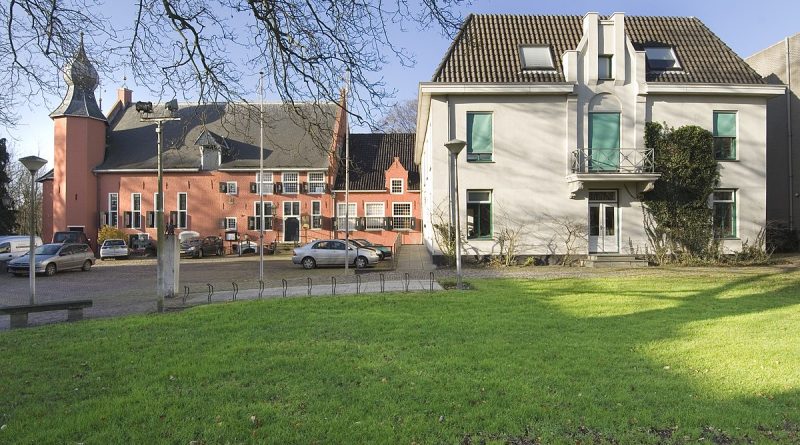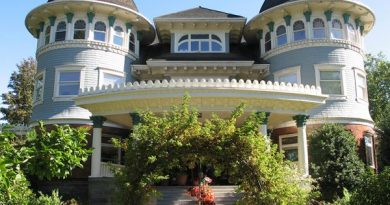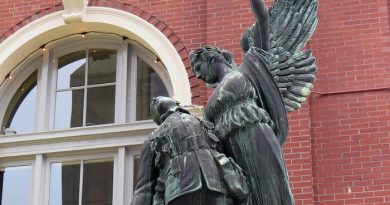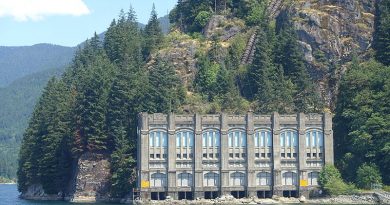Coevorden
What connection does Vancouver have with Coevorden, an industrial town of about 20,000 in the northeast Netherlands, right up against the German border?
The answer begins nearly 700 years ago in 1315, when a Dutch nobleman named Reinolt was made a viscount of the city, and so became known as Reinolt van Coeverden. (The town name was spelled Coeverden back then.)

The van Coeverdens, whose coat of arms shows three red eagles on a golden field, are one of the oldest noble families in the Netherlands; there are descendants with that name living today in the regions of Twenthe and Achterhoek. At the peak of their power, the family had the right of coinage, and those coins had van Coeverden faces on them.
If you trace the long and complicated line of descent from Reinolt through the centuries to 1671 you find, nine generations later, Reint Wolter van Coeverden. Just such a search was made in the 1880s by a Dutch army captain and amateur genealogist, C.J. Polvliet, who published his findings in an 1883 issue of Heraldieke Bibliotheek, a Dutch heraldic magazine.
Polvliet discovered that Reint Wolter van Coeverden had, for the first time in more than three centuries of the family’s history, married someone from outside the country. She was an Englishwoman named Johanna Lillingston. The Lillingstons were a Yorkshire family of long lineage, and were in Burke’s Peerage. Johanna is, it seems, the grandmother of the man for whom Vancouver is named.
Polvliet’s research was summarized in the February, 1973, issue of B.C. Historical News by Adrian Mansvelt, who was consul general for the Netherlands in Vancouver at that time. We learn that Polvliet’s records of this English connection are vague and fragmentary, but it appears Reint Wolter’s son Lucas may have stayed in England “because of his English affinities through his mother.”
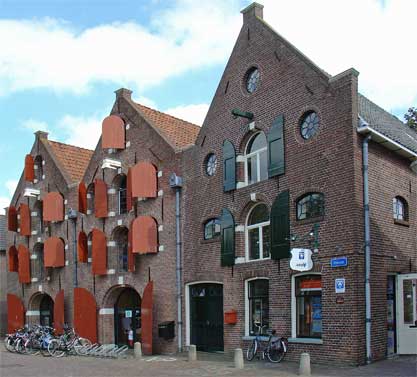
[Photo: Wikipedia]
Somewhere along in here the English branch of the van Coeverdens changed and shortened their name to Vancouver. Lucas Vancouver “was, presumably, the grandfather of Capt. George Vancouver,” wrote Mansvelt, “and it may be assumed he (Lucas) married one Sarah Vancouver, whose maiden name remains unknown but who lived in St. James Street in King’s Lynn, and was registered as a householder there.”
King’s Lynn is the Norfolk town in which George Vancouver was born in 1757. He was the sixth and last child of John Jasper Vancouver (Lucas’ son) and his wife Bridget.
Captain George didn’t forget his ancestry. He named a Couverden Island, a Point Couverden, and a Couverden Rock while exploring the British Columbia coast. (Curiously, the huge B.C. Gazetteer doesn’t list any of these; I had to go to Walbran’s Coast Names to find a reference to Couverden Point, “the west point of entrance to Lynn Canal.” That canal, by the way, was named in honor of Vancouver’s hometown.)
We don’t know of any people alive today named Vancouver, except for a local architect who, many years ago, legally changed his name to Tom Vancouver (from Zoltan Bernabe Tomas Martonffy!), although Mansvelt thinks there just may be some descendants of John Vancouver — an older brother of George’s — alive in England today.
John’s twin brother, Charles, emigrated to the U.S. and died in Virginia in 1818. I have a hunch he may be the same Charles Vancouver listed in the bibliography of the Oxford English Dictionary as the author of four books on English agriculture. They appeared in the years between 1794 and 1813 and that seems to fit.
There’s a humbling footnote to this story: Coevorden, in Dutch, means “cow crossing.”

[Image: www.legerplaats.nl/coevorden/_coevorden.htm]

